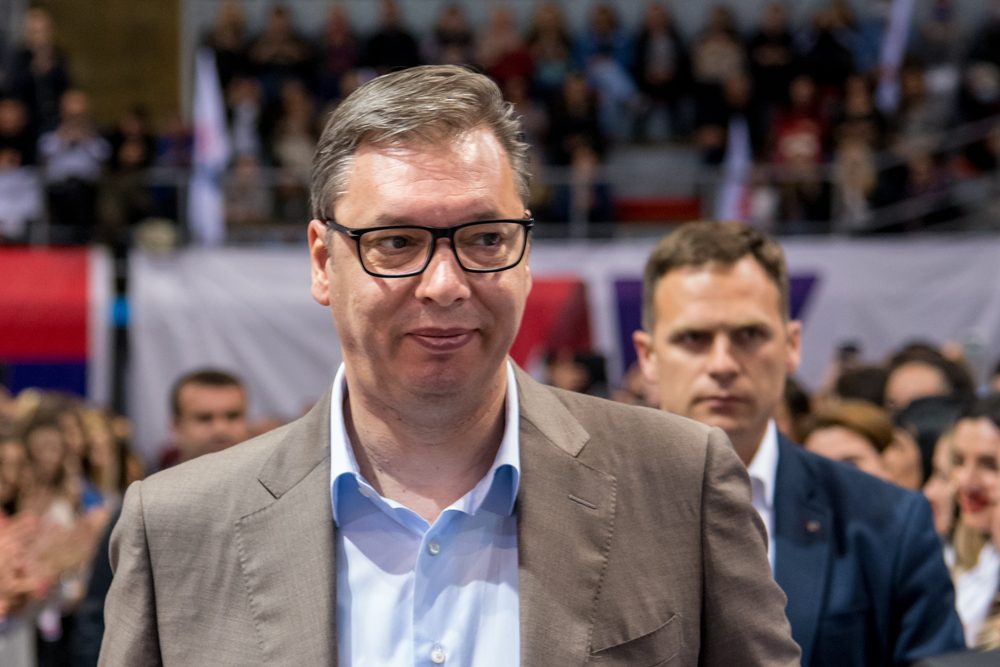
The Serbian army is placed on full alert, Defence Minister Miloš Vučević announced Monday evening, December 26th. The order was given by President Aleksandar Vučić in response to heightened tensions with neighboring Kosovo, which Belgrade views as a breakaway province.
“As commander-in-chief, the president of Serbia ordered this evening that the Serbian Armed Forces be placed on full alert from tonight,” Vučević said in a Tanjug press release. This was done, he said, to “protect the territorial integrity and sovereignty of Serbia and all Serbian citizens and prevent a pogrom and terror against Serbs.” While he stressed there was no reason for panic, he did see a reason for concern.
Vučić’s decision, he said, was due to the latest developments in Kosovo. Authorities in Pristina, the president has said, were preparing to attack the ethnic Serb minority in North Kosovo and to remove the barricades there (which on December 10th had been erected by Kosovo Serbs in protest of a Serbian ex-policeman’s arrest) by force.
Vučević went on to say that
Serbia’s calls for resolving the problems in the format of dialogue and for a return to political dialogue, rather than conflicts, have resulted in no response, with neutral and irritating calls being made for restraint on both sides and with consequences, rather than causes, being dealt with.
In statements made to the press after a Tuesday, December 27th, meeting with Patriarch Porfirije of the Serbian Orthodox Church, Vučić said that “considering the geopolitical situation and their desire to crush us due to the situation with Russia and Ukraine [Serbia, being a long-time ally of Russia (one could infer from Vučić’s statements), is being targeted to weaken or distract Russia itself], you should have no doubt that this will continue. I am not sure we will be able to overcome that because we are talking to someone who is willing to hear no arguments.”
Even if a measure of serenity returned in Kosovo, he added,
something new would happen in 15 to 30 days as Pristina’s goal was to banish Serbia and “disobedient Serbs” from Kosovo-Metohija [the old name for the region still used by Serbs] forever.
He added that Belgrade is “trying to preserve and ensure peace and reach a compromise solution,” and that threats by Kosovo’s Prime Minister Albin Kurti were “hysterical.”
In a disconcerting remark, Vučić concluded that the West (though he did not provide a specific source) was also issuing threats, as it supposedly had said that Belgrade was “running out of time,” and that if it “did not do what needs to be done, we will let Kurti do it all.”
On Tuesday, Vučević and the head of the Serbian army General Milan Mojsilović inspected the Serbian troops already stationed near the border with Kosovo.
The same day, Kosovan Interior Minister Xhelal Sveçla said that Serbia, influenced by Russia, was aiming to destabilize Kosovo by supporting the Serb minority in the north. Serbia has denied this and says it only seeks the protection of its minority there.
Since Kosovo, with its Albanian majority, declared its independence in 2008, Serbia has refused to recognize its former southern province’s new status. More than half of the 193 UN countries also do not recognize Kosovo, which recently applied for EU membership.
Currently, five EU states—Spain, Greece, Romania, Slovakia, and Cyprus—do not recognise Kosovo’s statehood.
